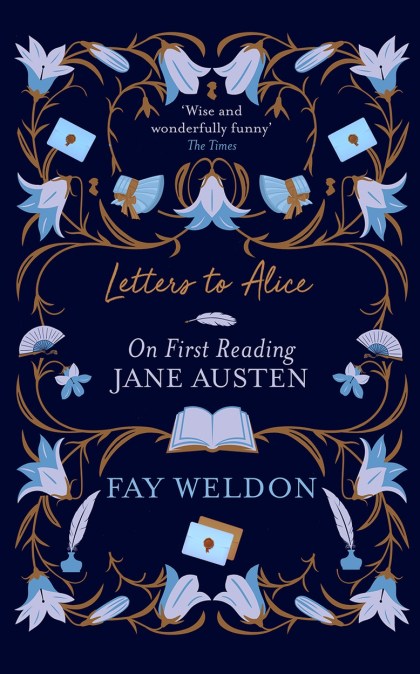Letters to Alice
On sale
31st March 2011
Price: £12.99
A love letter to Jane Austen and to the power of reading by an icon of British literature
‘Wise and wonderfully funny’
The Times
‘Splendid’
Guardian
‘It should be required reading’
New York Times Book Review
A special new edition of a modern classic, celebrating Jane Austen’s 250th birthday: blending truth and fiction, the delightful collection of letters Fay Weldon sent her ‘niece’ about reading Jane Austen, the act of creation and the joys of writing
In this charming sequence of fictional letters – inspired by those Jane Austen sent to her own niece – ‘Aunt Fay’ writes to her niece Alice, an eighteen-year-old student and aspiring writer with green hair and zero interest in reading Austen for her college English class.
As Aunt Fay responds to her niece’s complaints, what begins as a passionate defence of the joys and rewards of wide reading, soon becomes a sparkling tribute to Austen’s enduring brilliance – and an exploration of the craft and pleasure of fiction itself.
Witty, ironic, and full of deep wisdom, Letters to Alice is a love letter to books from one of British literature’s most original voices.
‘Shrewd and funny’
Times Literary Supplement
‘Full of pithy reflections on Jane Austen’s life and the society of the day . . . full of unsuspected wisdom’
Daily Telegraph
Reviews
Witty, convincing and spirited . . . both a fascinating study of Jane Austen and a novelist's enquiry into her own art
A study of a writer (and reader) thinking aloud about art and civilization . . . it should be required reading, a prerequisite for students of literature.
Full of pithy reflections on Jane Austen's life and the society of the day . . . full of unsuspected wisdom
Weldon fights for fiction . . . She writes with conviction and wit
Wise and wonderfully funny
Wise, sharp, informative . . . the advice about writing is sane and splendid

